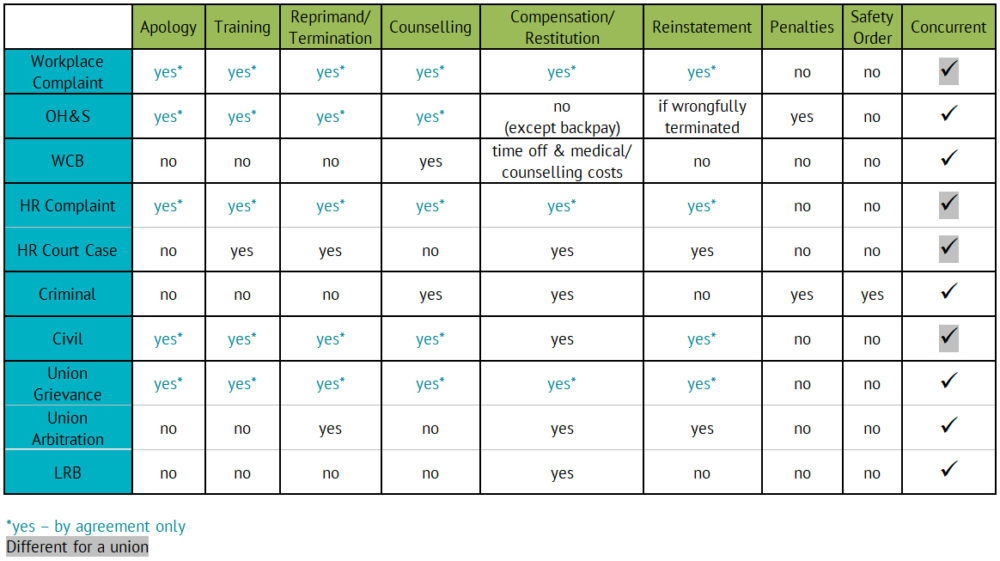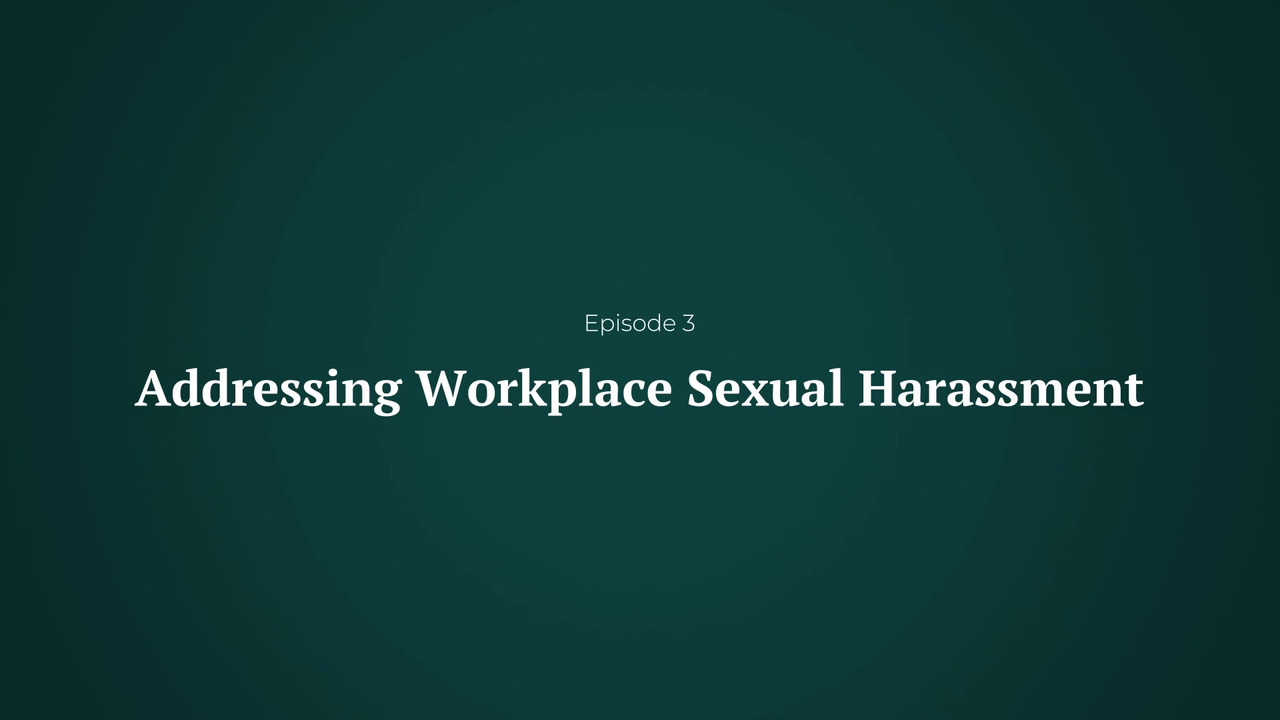There are many, many responses to workplace sexual harassment. Not all options are open to all workers, but all workers have options. Depending on your individual circumstances and desired outcomes, you can pursue available options that best suit your needs. These options are discussed in detail elsewhere on the site but this brief overview can help you navigate options for responding to workplace sexual harassment.
While it is important to understand your options, it is also important to remember that you have the power to make your own decisions about what you want to do. The decision to take actionor to stay silent can impact your future employment as well as your physical and mental wellbeing.
Regardless of what you may decide to do about it, if anything, it is always a good idea to keep notes about what has happened. If you decide to take action these can be very helpful. Confiding in a trusted friend or co-worker can also help you deal with the situation and provide you with support as you exercise your options.
Where Can I Go for Help?
The following apply to provincially regulated workplaces. Most workplaces in Saskatchewan are regulated under provincial legislation. Some workplaces are federally regulated. Processes and options can be different in these workplaces. Information specific to federally regulated workplaces is provided under the various topics on this site.
If you are going to confront a harasser make sure you are safe and consider having a third-party present.
Discussion – All workers can choose to confront a harasser directly, talk to their employer or supervisor or ask Occupational Health and Safety for information or guidance. Unionized workers can also go to their union for help. These options are different than making a complaint and can be a first step when deciding whether to make a complaint or be taken instead of making a complaint.
If you decide to make a complaint your employer is required to investigate.
Workplace Complaints – In all workplaces there must be a process in place for making harassment complaints and for investigating harassment complaints. Employers are required to take corrective action when there has been harassment.
Occupational Health and Safety - Harassment in the workplace is a health and safety issue and workers can ask for assistance from Occupational Health and Safety.
Grievances – If you make a complaint about workplace sexual harassment to your union they may file a grievance. Only the union can decide whether to file a grievance, but they must represent workers fairly when making this decision.
Arbitration - When a union has made a grievance on behalf of a worker and the matter is not resolved under the collective agreement, the union can decide to have the matter determined by an Arbitrator.
Labour Relations Board – Workers who feel that their union has not represented them fairly through the complaint process can appeal the matter to the Labour Relations Board.
Human Rights Complaint – Workers who have been discriminated against contrary to human rights laws because of sexual harassment can make a complaint to the Human Rights Commission. There are processes in place for both federal and provincial workers under federal or provincial human rights laws.
In unionized workplaces workers may need to go through the grievance process first.
If the matter was dealt with through a grievance, the Human Rights Commission can decide not to hear the same complaint.
Workers' Compensation Claim (WCB)- Workers who have been psychologically or physically injured by workplace sexual harassment and need time off to recover and/or have medical or counselling costs may choose to make a claim to WCB.
Criminal Complaints – Any worker who has experienced workplace sexual harassment that is criminal in nature, or believes that they may have, can report the matter to the police.
Civil Complaints – Suing your harasser and/or employer may be an option for some workers in some circumstances.
It is important to be mindful of limitation periods that apply. For example, human rights complaints must be filed within 12 months of the incident, while most civil suits must be commenced within two years.

